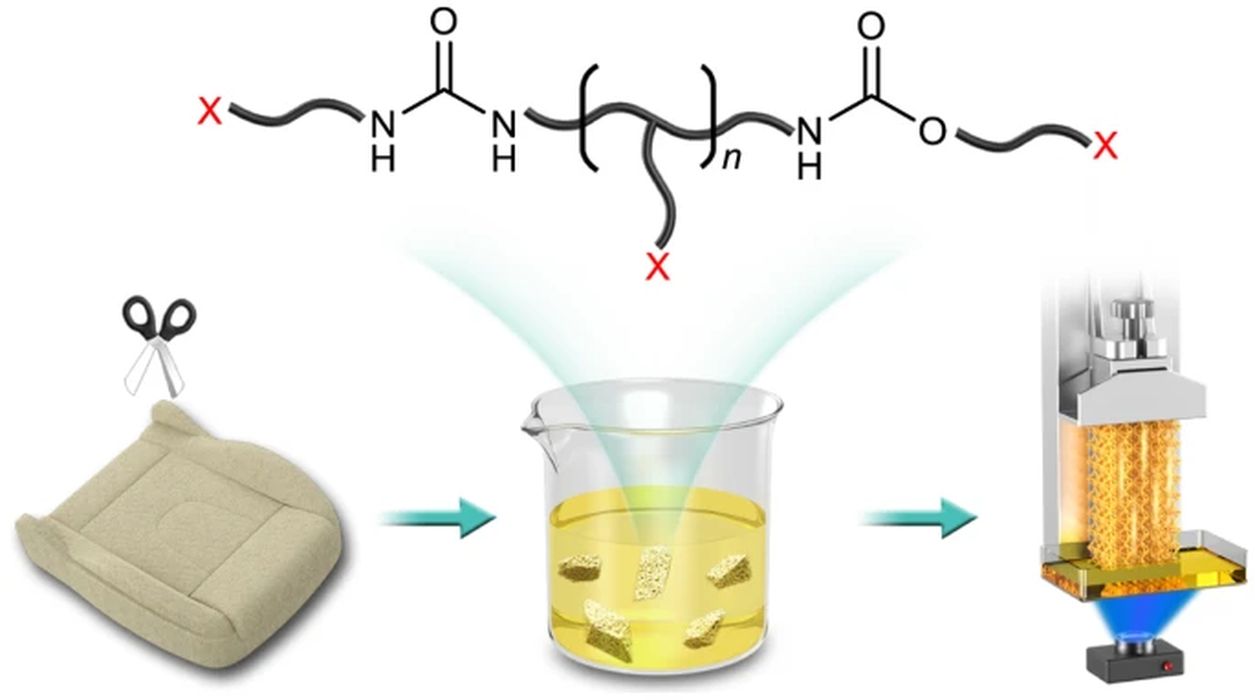
Researchers have found a way to recycle certain types of thermosets.
Hold on, what’s a “thermoset”?
It’s a type of plastic material that is the opposite of thermoplastics, which are commonly used in FFF 3D printers. A thermoplastic is able to be softened by heat, reformed and then frozen back solid condition when cooled. That’s precisely what happens in the hot end of a FFF 3D printer.
Thermosets, on the other hand are quite different: they begin as resin and then after the application of some agent, such as UV light or particular chemicals, they freeze into a solid.
This is what is done in MSLA, SLA and other types of resin 3D printers.
While the thermoplastics are relatively easily re-used and recycled, thermosets are not. Once made, they remain in that shape for eternity. Or at least until they gradually degrade in a landfill and pollute the environment as micro plastic particles.
3D printed thermosets are not the largest microplastic pollution problem, but there are plenty of other thermosets used in industry that do make up a substantial portion of waste. Of particular interest is polyurethane foam, used for making cushions and other foamy products.
The researchers found a way to apply a straightforward and potentially economical chemical process to polyurethane foam. This process would break down the foam into simpler molecules that can apparently easily be converted into usable UV-curable 3D printer resin.
That’s not all. They explain:
“Starting from a commodity foam, we show that the polyurethane network is chemically fragmented into a dissolvable mixture under mild conditions. We demonstrate that three-dimensional photo-printable resins with tunable material mechanical properties—which are superior to commercial high-performance counterparts—can be formulated with the addition of various network reforming additives. Our direct upcycling of commodity foams is economically attractive and can be implemented with ease, and the principle can be expanded to other commodity thermosets.”
So it may be that we have a future where we can recycle at least some thermosets.
Via Nature
